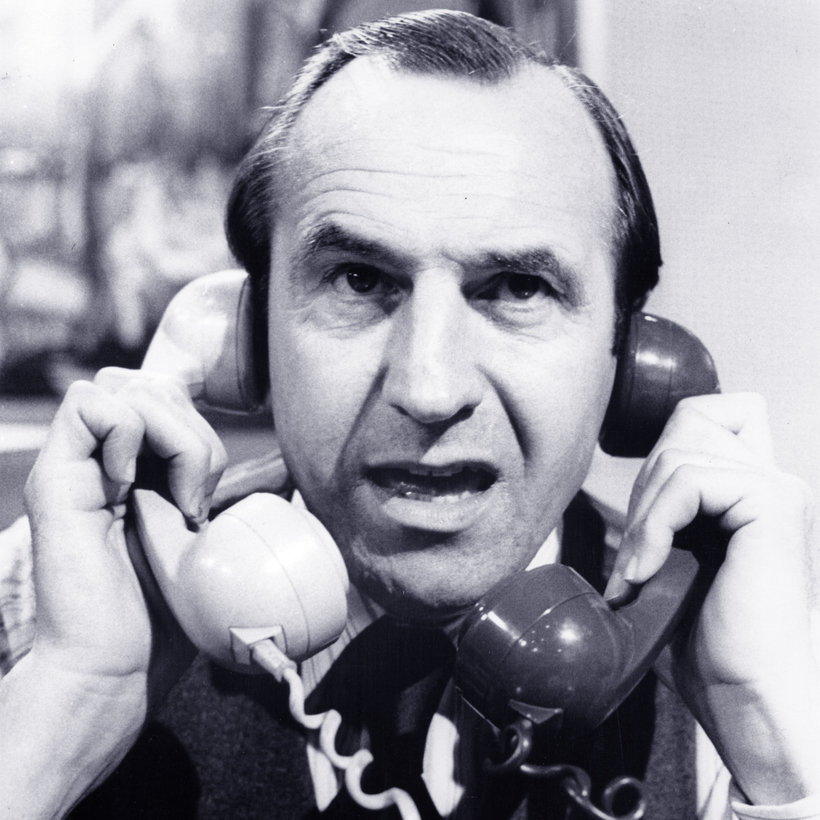In the early 1990s in the house of some family friends, tucked between The Game of Life and Taboo, there was a box that looked, to us children, faintly risqué. On the cover was a cartoon of an angry-looking man doing DIY with the strapline: “Can you survive your midlife crisis without cracking up, breaking up or going broke?” One New Year’s Eve, while our parents were dancing to Annie Lennox, we attempted to decipher its “crisis cards”, “stress” points and “divorce” points, and something mysteriously called “the change”. It felt like something we weren’t supposed to see, a distressing vision of our parents’ future and perhaps our own.
I had buried this memory until I read Mark Jackson’s “intimate” history of the modern midlife crisis, Broken Dreams. The game Midlife Crisis, he informs us, was created in 1982 at a high point for what he variously calls “the dangerous years”, the “emotional typhoon”, the “second emotional adolescence” and “the ‘measles’ of middle age”, as well as a few soothing euphemisms such as “meridian” and “crossroads”.
The midlife crisis might be an easy target for satire, but, as Jackson, a professor of medical humanities at Exeter University, warns us in this scrupulously unfunny book, we shouldn’t trivialize this period of emotional turbulence. It can, after all, stretch for, ooh, 20 years, and has Dante, no less, as its patron saint. The Italian writer’s Inferno includes the line “In the middle of the journey of our life, I came to myself in a dark wood, for the straight way was lost.”
“Can you survive your midlife crisis without cracking up, breaking up or going broke?”
Jackson, however, begins with Reginald Perrin, the jaded middle manager of David Nobbs’s comic novels and 1970s BBC sitcom. Driven to despair by his dull commuter existence, Perrin scrawls “I am not a mere tool of the capitalist society” on the crossword page of his daily newspaper before driving to the Dorset coast, stripping naked and faking his death. After a few days his nostalgia for his old life makes him creep back wearing a wig and fake beard.
Reggie was displaying the impulsive and destructive symptoms of a midlife crisis as outlined a decade earlier by Elliott Jaques, the Canadian psychoanalyst who coined the term. You might see it as an inevitable tension between the forces of procreativity, productivity and creativity of youth and the stagnation and decline of old age.
Biology isn’t the only explanation, though. The midlife wobble, Jackson shows, emerged in the early-middle decades of the 20th century when Westerners were experiencing more clearly defined life stages and transitions. After the Second World War we were living longer, marrying earlier and having fewer children — whose births were clustered together in the early years of marriage. This led to a longer, standardized period of middle age. Once there were socially prescribed milestones against which people could measure themselves, there was potential for resentment, disappointment and panic if those achievements didn’t match up.
This became particularly pronounced when the interwar American Dream of collective prosperity and upward mobility was replaced by an advertising fantasy of self-fulfillment, higher wages, snazzier cars and better sex. Meanwhile there were new, synchronous family pressures: children becoming troublesome “teenagers” and elderly parents dying meant that “fathers, mothers and children passed together through their own — and each other’s — identity crises”.
An ever more individualistic society laid ever more responsibility on the individual. In Joseph Heller’s novel Something Happened (1974) the philandering Bob Slocum — who declares, “Even before I was married I wanted a divorce” — locates his own malaise within the context of a sick society. Not only does he have an unhappy wife, unhappy children and unhappy employees to worry about, “I’ve got the decline of American civilization and the guilt and ineptitude of the United States to carry around on these poor shoulders of mine”.
The interwar American Dream of collective prosperity and upward mobility was replaced by an advertising fantasy of self-fulfillment, higher wages, snazzier cars and better sex.
Jackson is excellent on a particular kind of midlife crack-up associated with irascible white bureaucrats about 50 years ago. However, anyone entering middle age now might want a little scholarship beyond the 1970s. There is no Paul Rudd playing Scrabble on his iPad in the loo in the film This Is 40 (2012); no middle-aged man discovering online hookups, like the title character of Taffy Brodesser-Akner’s Fleishman Is in Trouble (2019), arguably the classic contemporary midlife crisis novel.
There are also no women discovering the joys of outdoor swimming or circus skills classes or ranting about men online — in fact, almost no working women at all. Jackson critiques the way that the cultural notion of the “midlife crisis” centers on the married, white-collar Western male, but he does little to expand that narrow conception. Don’t gay people and single people experience midlife crises? Don’t women experience crises that are not just tied to the menopause, unfaithful husbands or empty nest syndrome, but professional anxieties, even a bit of old-school Dantean spiritual madness?
A more imaginative examination might have included Nora Ephron on her sagging neck; Rachel Cusk seeking new forms of freedom post-divorce; Deborah Levy on what it means to be an unseen woman.
The midlife crisis has also surely changed just as society has changed. In the West people are having children later, the older generation is living longer, salaries are falling and so too, it seems, is Western civilization. If, as Jackson claims, the postwar midlife crisis was sociologically prescribed, it can always change. In which case: what will a post-pandemic midlife crisis look like? How will the huge social and economic pressures bear down on our own crackups? And will our revolts be private or political?
Johanna Thomas-Corr is a London-based journalist. Her writing has appeared in The Times of London, The Telegraph, and the Financial Times

